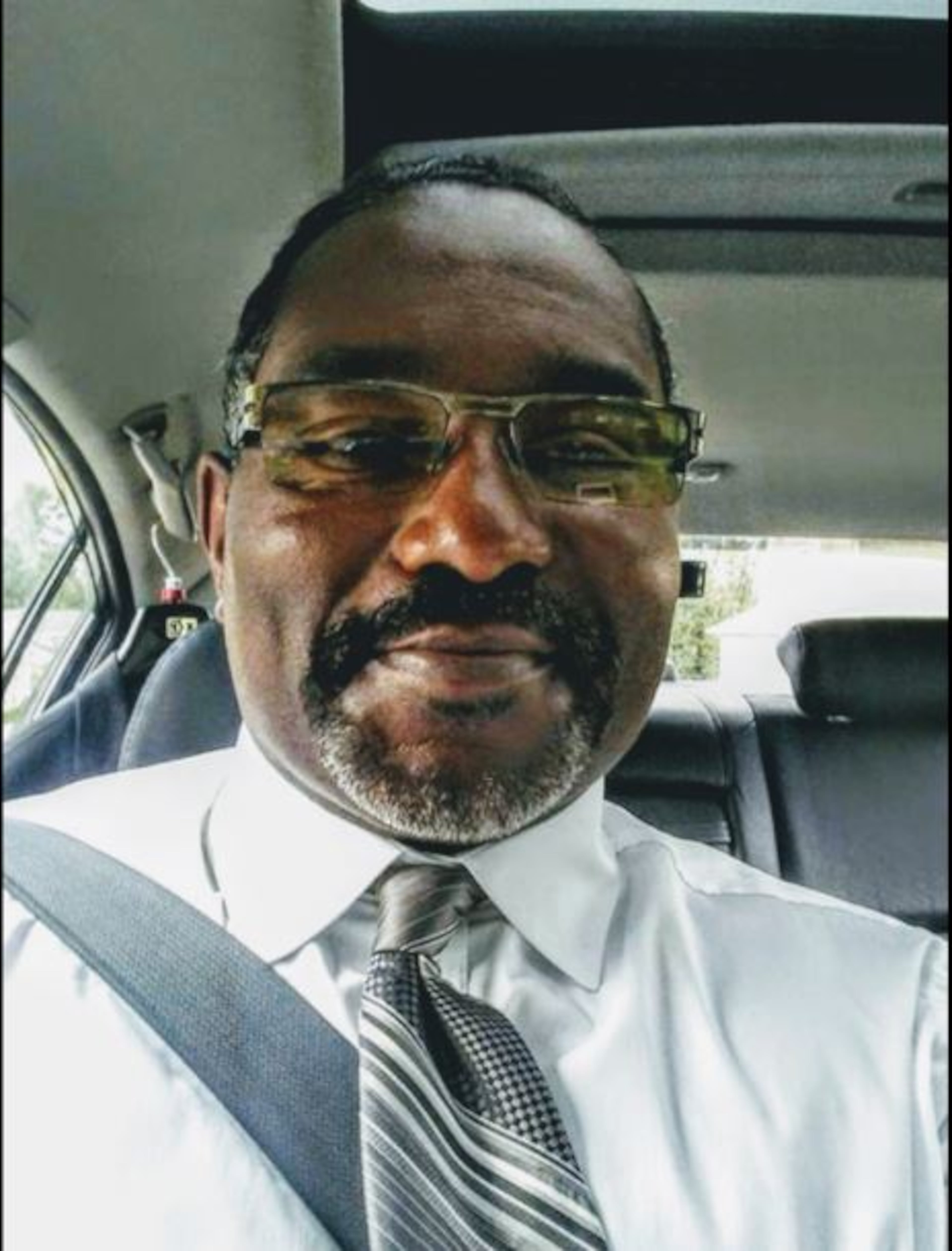United Methodists fear split over LGBTQ vote in the church

In what will be a historic meeting in St. Louis in the next few days, the nation’s second-largest Protestant denomination will consider changing language in its Book of Discipline that will address LGBTQ issues.
Allowing pastors to perform same-sex marriages and ordaining “self-avowed practicing” gay clergy are among the most controversial issues facing the United Methodist Church’s more than 12.6 million members worldwide, including almost 7 million in the U.S. The ramifications of what happens in St. Louis will be felt around the world, including among the more than 467,000 United Methodists in Georgia.
As delegates and observers from around the world gather for three days, starting Sunday, at the special session of the General Conference, the Rev. Charles W. Savage II, a lifelong United Methodist and pastor at Sardis United Methodist Church in Atlanta, has one prayer.
“My real prayer for this is that we don’t kick the can down the road,” he said.
Again.
In 2016 at the regularly scheduled General Conference, which is held every four years and is the top policymaking body, delegates were immobilized over the question of rules on human sexuality and didn’t vote. A special commission was formed to look at ways the church could address the issue.
It’s a contentious issue that could tear the church apart and cause some congregations to leave the fold, said Savage, a conference delegate and elder in the North Georgia Conference of the United Methodist Church. He has explained the possible outcomes in a series of newsletters to his 75-member congregation, one of the oldest in Atlanta.
“What the people at Sardis have said is that we are a family and we don’t want to have this thing to come between us and cause us to divide,” he said. Some “people in the church obviously have gay children or gay relatives. I have them in my own family. What people would like to see happen is for a decision to be made and for those churches that want to disassociate and be part of something else or become independent to have a gracious exit.”
The General Conference will draw more than 864 delegates from throughout the U.S. and as far away as Kenya and the Philippines.
The North Georgia Conference, which includes Atlanta, has more than 800 churches and is sending 22 delegates.
While the church’s laws state “all people are persons of sacred worth,” it also says homosexuality is incompatible with Christian teaching.
Consequently, “self-avowed practicing” gays cannot be certified as candidates, ordained as ministers or appointed to serve in the church. Also, same-sex marriages cannot be conducted by clergy or in Methodist churches.

A number of legislative options are being explored, but these three are coming as part of a report from a denominational study group:
One option, the One Church Plan, would allow individual clergy to decide on whether to marry same-sex couples, and it would allow each church to decide whether to allow same-sex marriage in its sanctuary. It would remove prohibitions against ordination of “self-avowed practicing homosexuals.”
Another option, the Connectional Conference Plan, would allow for three national conferences, each with similar ideologies, all U.S.-based, to form based on whether member churches allow same-sex marriages rather than the current system of regional conferences formed around geography. This option has not received widespread support.
The third option would keep the current stance, which forbids clergy from performing same-sex marriages in the church and maintains prohibitions against self-avowed practicing gay clergy. It would also strengthen the accountability process.
Additionally, 30 petitions will be considered from sources other than the study committee. Included is a proposal for a fully inclusive church commonly known as the Simple Plan, which opens the church to same-gender marriages and LGBTQ clergy.
Full LGBTQ inclusion has been a lightning rod in the church for decades, said Jan Love, dean of Emory University’s Candler School of Theology, which is affiliated with the United Methodist Church.
“At this point, many advocacy groups are digging in. There is no plan, really, that is going to please everyone. … I’m so eager for the church to grapple with this very seriously, make a decision, and then move forward with vibrant ministries that share the love and grace of Jesus Christ with everyone,” Love said. “Right now, I think it’s a toss-up on how the decision could go. I won’t wager a prediction, but no matter what happens, I think it’s very clear that some churches will pull out.”

The next regular General Conference is set for 2020 in Minneapolis.
Josh Noblitt, an associate pastor of St. Mark United Methodist Church in Atlanta who is openly gay, said he’s talked to many United Methodist members who have left the denomination and joined the United Church of Christ or the Episcopal Church because these issues have already been settled there. “The issues related to sexuality are not and have never been issues of salvation, and it just breaks my heart that we are down to this decision, which is either unity or uniformity,” Noblitt said.
Not everyone wants change.
Anthony Jackson, a member of Cascade United Methodist Church in Atlanta, isn’t comfortable with the notion of same-sex marriages or the ordination of openly gay pastors.
“Well, I don’t think same-sex marriage should be granted anywhere,” he said. “The Word strictly states that God created man for woman and woman for man. It didn’t say man for man. I don’t think you can edit or tweak it or go with the times.”
However, Jackson said if the church decides to change its stance, he would still worship at Cascade. “I love my church enough to stay,” he said.
The Rev. Randy Mickler, who is retired and pastor emeritus of Mount Bethel United Methodist Church in Marietta, feels just as strongly.
“I think the split is coming,” said Mickler, who is against same-sex marriage. “I think the Word of God should be honored by the church, if the church is going to be a true church.”
RELATED: Theme across Atlanta churches: It's time for racial healing
It’s not the first time a mainline denomination has had to grapple with issues around human sexuality.
The Episcopal Church began dealing with LGBT issues four decades ago. In 2003, Bishop V. Gene Robinson of New Hampshire made history as the first openly gay bishop ordained in the Episcopal Church worldwide. In 2015, the church passed a binding resolution that allowed priests to perform same-sex marriages in the church. Even before then, though, openly gay priests could be ordained.
“It’s been a very soul-searching process, and it’s gone on for four decades,” said Don Plummer, a spokesman for the Episcopal Diocese of Atlanta, “so we’re not really new to this issue.”
RELATED: 5 largest churches in Georgia
The Rev. Glenn Ethridge, pastor of Oak Grove United Methodist Church, said he supports the One Church Plan, but doubted it would be approved.
“This plan is not perfect for anyone, but it respects the conscience of clergy, churches, and annual conferences,” Ethridge, a United Methodist pastor for more than three decades, wrote in a pastoral letter to his Decatur congregation. But he also noted that the African delegation is extremely conservative, making changes in the church’s views on human sexuality less likely.
The Rev. Beth LaRocca-Pitts, senior pastor at St. Mark, said whatever happens in St. Louis, her church will continue to welcome all people.
Younger generations will “think we are ridiculous for having this issue,” she said. “It makes us look narrow and judgmental and that’s not who we are.”
WHAT’S ON THE TABLE
When a special session of the General Conference of the United Methodist Church meets in the next few days, LGBTQ issues will be discussed. Here are the main three options being explored:
The One Church Plan would allow individual clergy to decide on whether to marry same-sex couples, and it would allow each church to decide whether to allow same-sex marriage in its sanctuary. It would remove prohibitions against ordination of “self-avowed practicing homosexuals.”
The Connectional Conference Plan would allow for three national conferences, all U.S.-based, to form based on whether member churches allow same-sex marriages rather than the current system of regional conferences formed around geography.
The third option would keep the current stance, which forbids clergy from performing same-sex marriages in the church and maintains prohibitions against self-avowed practicing gay clergy.

